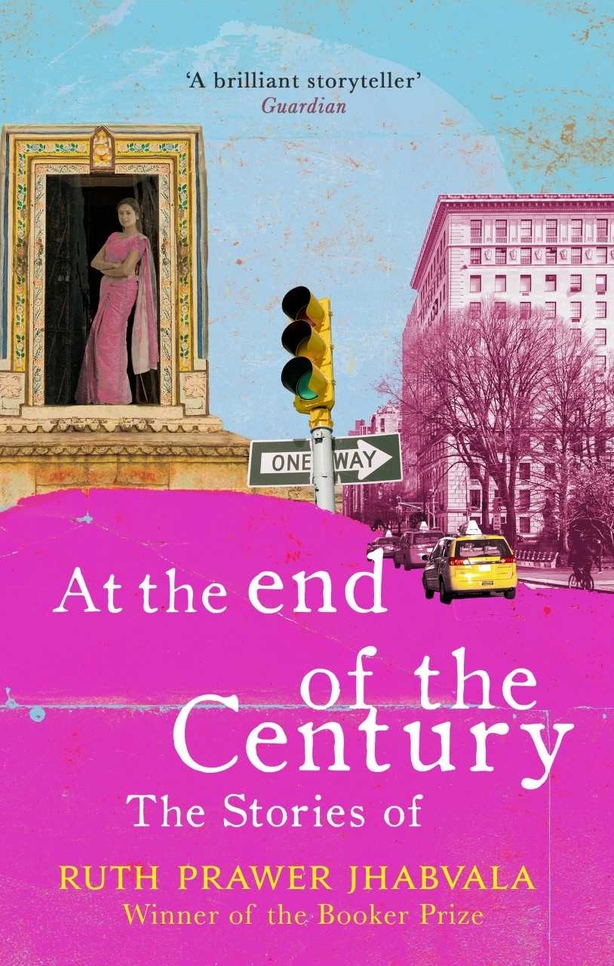Ruth Prawer Jhabvala (1927-2013) won the Booker Prize in 1975 for her novel Heat and Dust, along with Academy Awards for Best Adapted Screenplay for the film versions of the EM Forster novels, Howard’s End and A Room with a View. Her collected stories are elegantly restrained tales that shed an even, measured light on her vast cast of characters.
The writer Anita Desai, who was a friend of Ruth Prawer Jhabvala, writes an illuminating introduction to these stories. Ruth married the architect Cyrus Jhabvala, and before she got to know her Desai used to see Jhabvala walking along New Delhi’s Alipur Road, a wide avenue lined with giant banyan trees, pushing `a perambulator with a baby seated in it and a little girl dancing alongside it.’ The young woman, she learned, was of Polish and German parentage but had come to live in England at the age of 12 and graduated from Queen mary Collge in London University.
The first of the 17 stories collected here, A Loss of Faith was first published in 1963 and is set in a chaotic extended family in New Delhi, a clan in which wife-beating and alcohol misuse go unchecked. Serious rows regularly break out between family members because of the confined spaces they inhabit.
Our protagonist is Ram Kumar, whose violent father died some years previously. By dint of gaining employment in a drapery shop, the young man manages to move with his mother and two sisters to another dwelling, leaving his hard-pressed uncle’s more crowded domicile - but there is still no privacy.
Tensions arise between the dutiful Ram and his more charismatic older brother Vijay as a girl living upstairs in the flats becomes a regular visitor. Meanwhile, mother is anxious that the young man's two sisters must be married off. Responsibilities pile on responsibilities, as the young man essentially inherits the same burden his uncle carried while taking home a ridiculously low wage from a skinflint employer.
In A Course of English Studies (1968) Nalini, a young Delhi girl enrolls in an English literature course at an English Midlands university. Eager to experience a relationship and not be strait-laced and repressed like her fellow students, she gives free rein to her crush on the cautious, impecunious lecturer, Dr Norman Greaves. He teaches Chaucer and the Augustans, is married with children and despite his caution, cannot resist embarking on a relationship with his student. The experience almost unnerves him. Meanwhile, Nalini is staying with a Mrs Crompton, who is prone to black moods and was the injured party in a divorce settlement.
The narrative tracks Nalini’s illicit relationship with attention to the changing seasons and the look of the landscape and there is a palpable sense of English provincial life in the 1960s: The weather was warmer. It was a good spring that year, and crocuses appeared even in Mrs Crompton’s garden. Nalini began to feel better – not happy, but better.

The lecturer’s unease with an affair which he certainly did not invite is rendered through the things he says, a particularly effective Jhabvala trait. 'How can you bear it here,' he said. `In this dreadful climate’. There was an edge to his voice, and his hand fidgeted irritably with the china ashtray. That elegance and subtlety is evident particularly in the early stories - subtlety has seeped away somewhat from contemporary popular fiction, although Sally Rooney is certainly a practicioner. Prawer Jhabvala reminds one of the restrained and highly-nuanced stories of the late Irish writer, Mary Lavin.
But there is a skittish, playful side too. Jump ahead to 2011 in this capacious collection of 433 pages and the reader discovers Pagans, a thoughtful comedy of manners set on the fringes of Hollywood as a free-spirited, wealthy widow named Brigitte conducts a secret affair with her sister's husband. Recommended for your Book Club.







